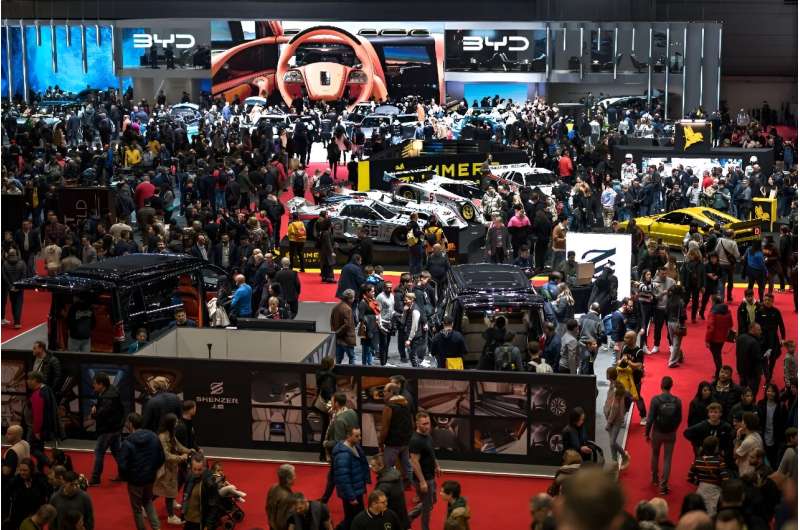
The more than century-old Geneva International Motor Show will be cancelled for good following waning interest from automakers in what was once an unmissable industry event, organizers said Friday.
The Qatar edition of the event, however, will continue and take place again in 2025.
The first Geneva auto show took place in 1905, attracting 17,000 visitors and had two more editions before a hiatus due to an economic crisis and World War I.
It resumed in 1923 and reached a peak in 2005, when nearly 750,000 visitors attended the event.
The COVID pandemic shut down the show again for four years.
When it returned earlier this year, there were 37 exhibitors and 168,000 visitors—well below previous editions. In 2019, the year before COVID, it attracted 602,000 visitors and 184 exhibitors.
Alexandre de Senarclens, president of the permanent committee of the foundation behind the event, said cancelling the show for good was an "extremely regrettable decision".
"The lack of interest shown by manufacturers in the Geneva Salon in a difficult industry context, the competition from the Paris and Munich shows which are favored by their domestic industry, and the investment levels required to maintain such a show, sound the final blow," he added.
Organizers said they had asked cantonal authorities to dissolve the foundation.
"There are too many uncertainties linked to the automotive industry and the eroded attractiveness of the major European shows to take the risk of investing further into the future," the organization said in a statement.
But the Qatar edition "continues its journey" after a "successful" first edition last year, the statement said.
The next Geneva International Motor Show Qatar will take place in Doha in November 2025.
© 2024 AFP
Citation: Geneva auto show closes shop after 119 years (2024, May 31) retrieved 31 May 2024 from https://techxplore.com/news/2024-05-geneva-auto-years.html
This document is subject to copyright. Apart from any fair dealing for the purpose of private study or research, no part may be reproduced without the written permission. The content is provided for information purposes only.
